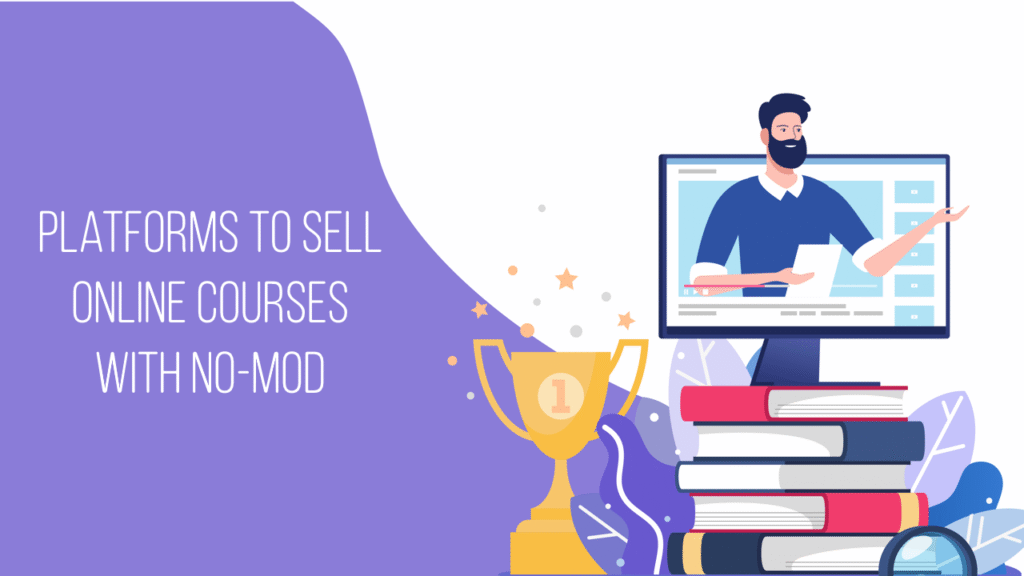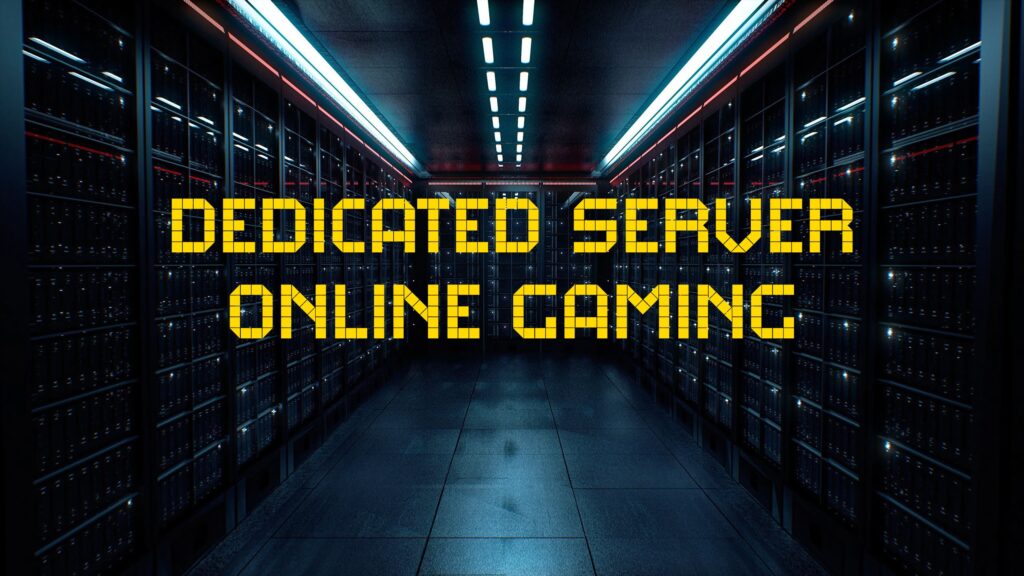Hi friends, Imagine this: you learn from the sharpest minds at Harvard, Massachusetts Institute of Technology (MIT), or Stanford, diving into topics like coding, philosophy, or even the science of cooking – all for free. No tuition, no credits, just pure, top-notch education. Sound too good to be true? Well, it isn’t! American universities are opening their doors and digital classrooms to share free courses and lectures, both online and in-person, with anyone who is interested. Whether you’re an entrepreneur looking to upgrade your skills, a lifelong learner pursuing new interests, or just love a bargain, this guide is your roadmap to the best free schools.
I’ve dug into university offerings and platforms to bring you a detailed overview of the best free courses and lectures from US institutions. You’ll find out what each course is about, who it’s for and how to join. There’s a friendly atmosphere here – consider me your guide to world-class knowledge. Ready to join? Let’s explore!

Why Free Courses and Lectures Make a Difference
First of all, let’s talk about why this is so important. Institutions like Yale, Princeton, and UC Berkeley are world leaders, with Nobel Prize-winning professors and courses that are shaping entire industries. With programs like OpenCourseWare, MOOCs (Massive Open Online Courses), and public lecture series, they share their expertise with everyone – no application or tests required. Here’s why you should be thrilled:
- Learn from the best: These courses are taught by professors who have literally written the book on their subject.
- From artificial intelligence to ancient history, there’s something for everyone.
- Boost your career: Gain skills that will be useful on your resume or spark a new business idea.
- Save money: Free means no tuition, no textbooks and no debt – just knowledge.
- Flexibility: Online courses fit your schedule, while in-person lectures inspire and help you network.
Whether you’re in New York City or on the other side of the globe, these opportunities will put you in touch with elite education. Below, I’ve compiled the best free courses and lectures with detailed descriptions of what they’re about, who they’re for, and how to get started. Let’s dive in!
By the way, we also offer courses on digital marketing and advertising. You can find out more and get started in the Courses section.
The Best Free Online Courses from American Universities
Online courses are ideal if you lead a busy lifestyle or simply prefer to learn at your own pace. Platforms like Coursera, edX, and university websites (like MIT OpenCourseWare) offer thousands of free courses from top institutions. Most of them allow you to “audit” them for free, giving you access to lectures, readings, and sometimes quizzes without paying for a certificate. Here are some of the best online courses worth checking out:
1) CS50: Introduction to Computer Science (Harvard University) What is this course about? CS50 is Harvard’s legendary Introduction to Computer Science course taught by the dynamic David J. Malan. This course is popular worldwide, taking beginners and experienced programmers alike. You’ll learn the basics of programming in languages such as Python, C and JavaScript, as well as exploring algorithms, data structures and web development. Hands-on projects – such as creating games or apps – and problem sets that will sharpen your coding brain await you. By the end of the course, you’ll have a solid technical foundation and maybe even a new side project.
Who it’s for?
- Beginners interested in coding
- Entrepreneurs who want to understand technology
- Anyone who enjoys solving puzzles
Why is it necessary?
Live lectures with real life examples (cybersecurity, artificial intelligence and more)
Huge global community for support and networking
Skills that open doors to technology, marketing or startups
How to join?
- Platform: Available on edX or Harvard Online
- Cost: Free to audit; optional paid certificate (~$199)
- Steps:
- Sign up for a free edX account
- Search for “CS50” and select “Audit” for full access
- Start watching lectures and tackling problem sets – no application required
- Time Commitment: 10 – 20 hours/week for 12 weeks
- Requirements: A computer and internet connection
Pro Tip: Join the CS50 Discord or Reddit communities to swap tips and get help with tricky problem sets. Check out CS50’s YouTube channel for extra content.
2) Justice (Harvard University) What is this book about? The Justice course, led by philosophy rock star Michael Sandel, is a deep dive into moral and political philosophy. You will confront serious questions: What is justice? Is it okay to lie? Should we prioritize the greater good? Through debate, thought experiments (such as the famous trolleybus problem), and real-life examples, Sandel makes philosophy seem like an engaging group discussion. This course is based on Harvard’s most popular course, which often draws more than 1,000 students per lecture.
Who it’s for?
- Anyone interested in ethics and decision-making
- Business owners facing difficult choices
- Leaders who want to think critically
Why is this course worth taking?
- Will sharpen your ability to analyze complex issues
- Sandel’s storytelling makes big ideas accessible
- Applicable to politics, business, and everyday life
How to Join?
- Platform: Available on edX
- Cost: Free to audit; optional paid certificate (~$149)
- Steps:
- Create a free edX account
- Search for “Justice” and choose “Audit” for full access
- Jump into the 12-week course, with pre-recorded lectures you can watch anytime
- Time Commitment: 3 – 6 hours/week for 12 weeks
- Requirements: Curiosity and an open mind
Fun fact: Sandel’s lectures are so gripping that clips from this course have gone viral on YouTube.
3) Science and Cooking: From Haute Cuisine to the Science of Soft Matter (Harvard University) What is this course about? If you love food and science, this course will be a real treat for you. Harvard professors team up with world-class chefs (like Ferran Adrià of El Bulli) to explore the physics and chemistry of cooking. You’ll learn why meringues turn out fluffy, how to perfect a steak, and what makes chocolate melt just right. You’ll be treated to fun kitchen experiments and guest lectures from culinary stars, as well as learning concepts such as heat transfer and molecular gastronomy.
Who it’s for?
- Home cooks and food enthusiasts
- Entrepreneurs in the food service or hospitality industry
- Science fans who enjoy a tasty twist
Why take this course?
- Combines creativity with real science
- Sparks new recipes or business ideas
- Guest chefs bring the energy of Michelin stars
How to Join?
- Platform: Available on edX
- Cost: Free to audit; optional paid certificate (~$149)
- Steps:
- Sign up on edX
- Search for “Science and Cooking” and select “Audit”
- Start the 7-week course – no cooking skills needed
- Time Commitment: 4 – 8 hours/week for 7 weeks
- Requirements: A kitchen for optional experiments (watching is fine too)
Pro Tip: Try the experiments at home and share your creations on Instagram with #ScienceAndCooking to connect with other learners.
4) Foundations of Neuroscience (Harvard University) What is this book about? Are you interested in learning how your brain works? This beginner-friendly course, led by Harvard’s David Cox, explores neuroscience. You’ll learn how neurons function, how the brain processes information, and how we perceive the world. Through cool animations and virtual labs, you’ll learn about brain anatomy, electrical signals, and even diseases like Alzheimer’s.
Who it’s for?
- Psychology and health enthusiasts
- Techies interested in artificial intelligence or brain-computer interfaces
- Anyone interested in human behavior
Why it’s needed?
- Reveals the scientific basis of thoughts and emotions
- No scientific background is required – just curiosity
- Opens doors to careers in health, technology or research
How to Join?
- Platform: Available on edX
- Cost: Free to audit; optional paid certificate (~$149)
- Steps:
- Register on edX
- Search for “Fundamentals of Neuroscience” and choose “Audit”
- Start the self-paced course, with multiple parts for deeper learning
- Time Commitment: 3 – 5 hours/week for 5 weeks per part
- Requirements: A computer and internet
Cool note: The virtual labs let you “dissect” a neuron – no lab coat needed.
5) Introduction to Classical Music (Yale University Press) What is this book about? Craig Wright of Yale University guides you through the world of classical music, from Bach and Mozart to contemporary composers. You will learn how to listen to music, understand its structure, and feel its emotional power. No musical education is necessary – just a love of sound is enough. Wright’s passion turns each lecture into a story, covering symphonies, operas and more.
Who it’s for?
- Creatives who want to sound cultured
- Marketers working with music in advertising or movies
- Anyone who likes classic playlists
Why take this course?
- Will deepen your understanding of music in movies, games and culture
- Wright’s enthusiasm is infectious
- Perfect for impressing your friends during a trivia night
How to Join?
- Platform: Available on Coursera
- Cost: Free to audit; optional paid certificate (~$49)
- Steps:
- Sign up on Coursera
- Search for “Introduction to Classical Music” and select “Audit”
- Start the 9-week course, with downloadable lectures for offline access
- Time Commitment: 3 – 5 hours/week for 9 weeks
- Requirements: Earbuds and an open mind
Pro Tip: Pair this with a classical music playlist on Spotify or YouTube for the full experience.
6) Machine Learning (Stanford University) What is this course about? This course, taught by artificial intelligence pioneer Andrew Ng, is the most popular introduction to machine learning. You’ll learn how computers “learn” from data, look at algorithms, neural networks, and applications such as image recognition or recommendation systems (think Netflix). There’s a lot of math in the course, but it’s beginner-friendly and has exercises to build your own models.
Who it’s for?
- Technology enthusiasts or data nerds
- Marketers interested in AI-based advertising
- Entrepreneurs building tech startups
Why take this course?
- Machine learning is the foundation of the future of technology and business
- Ng lucidly explains complex ideas
- Skills to help you stand out in a data-driven field
How to Join?
- Platform: Available on Coursera
- Cost: Free to audit; optional paid certificate (~$79)
- Steps:
- Create a Coursera account
- Search for “Machine Learning” and choose “Audit”
- Start the 11-week course, with flexible pacing
- Time Commitment: 4 – 6 hours/week for 11 weeks
- Requirements: Basic math (algebra) and a computer
Fun fact: This course has trained millions, including many Silicon Valley engineers!

Free In-person Lectures and Events at American Universities
If you’re near a U.S. university or visiting, you’re in for a treat. Many schools host free courses and public lectures, seminars, or workshops through outreach programs or guest speaker series. These cover topics like climate change, AI ethics, or entrepreneurship, often featuring top faculty or industry leaders. Here’s a look at some great options and how to join.
7) Stanford Continuing Studies. Public Lectures. What’s It About? Stanford’s Continuing Studies program offers free public lectures on its Palo Alto campus, covering technology, leadership, and sustainability. Recent talks include “The Ethics of AI” by Stanford professors or “Building a Startup” by Silicon Valley founders. These events blend academic insights with real-world applications and draw big crowds.
Who’s It For?
- Entrepreneurs chasing big ideas
- Techies looking to network in Silicon Valley
- Curious locals or visitors
Why Attend?
- Hear from innovators shaping the future
- Connect with students, professors, and industry pros
- Get inspired on Stanford’s stunning campus
How to Join?
- Location: Stanford University, Palo Alto, CA.
- Cost: Free; some events require RSVP
- Steps:
- Visit the Stanford Continuing Studies website
- Check for “Public Lectures” or “Free Events” in the calendar
- Register online if needed and arrive early – seats fill fast
- Time Commitment: 1 – 2 hours per lecture
- Requirements: Show up (maybe with a photo ID for campus access)
Pro Tip: Follow Stanford’s X account (@Stanford) for real-time event updates.
8) MIT OpenCourseWare. Guest Lectures. What’s It About? MIT hosts free public lectures tied to its OpenCourseWare initiative, often on its Cambridge, MA campus. These cover cutting-edge topics like robotics, quantum computing, or bioengineering. You might hear an MIT professor discuss “The Future of Clean Energy” or a guest like a NASA scientist. Some lectures are streamed online for free.
Who’s It For?
- Science and tech enthusiasts
- STEM students or professionals
- Anyone who loves innovation
Why Attend?
- Get insights from world-class researchers
- See tech that’s shaping the future
- Explore MIT’s iconic campus (check out the Great Dome)
How to Join?
- Location: MIT campus, Cambridge, MA (or online for some events)
- Cost: Free; some require pre-registration
- Steps:
- Visit MIT OpenCourseWare and look for “Events” or “Lectures”
- Sign up for MIT’s newsletter for public talk updates
- RSVP if required and arrive early for a good seat
- Time Commitment: 1 – 3 hours per event.
- Requirements: Curiosity and maybe a campus map.
Cool Note: MIT’s campus is a nerd’s dream – visit the Stata Center for wild architecture or grab coffee at the student center.
9) Yale Open Courses. Public Seminars. What’s It About? Yale’s Open Courses program occasionally offers free public seminars in New Haven, CT, covering literature, history, or global affairs. You might attend a talk on “Shakespeare’s Influence on Modern Media” or “The Economics of Climate Change” by Yale faculty. These are often interactive, with Q&A sessions to engage with experts.
Who’s It For?
- Humanities lovers or history buffs
- Business owners interested in global trends
- Visitors to New Haven seeking intellectual fun
Why Attend?
- Explore topics with Yale’s top scholars
- Meet curious people from all walks of life
- Soak up the Ivy League vibe on Yale’s beautiful campus
How to Join?
- Location: Yale University, New Haven, CT.
- Cost: Free; some events require RSVP
- Steps:
- Visit Yale website and check the events calendar
- Look for “Public Seminars” or “Free Lectures”
- Register online if needed and arrive on time
- Time Commitment: 1 – 2 hours per seminar
- Requirements: Enthusiasm and maybe a notebook
Pro Tip: Pair your visit with a stop at Yale’s free art gallery for a full day of culture.
10) UC Berkeley. Public Lecture Series. What’s It About? UC Berkeley hosts free public lectures on its vibrant campus, covering science, social justice, and more. Popular series include “Berkeley Graduate Lectures” (featuring Nobel laureates) or “Science at Cal” talks on topics like exoplanets or gene editing. Held in iconic venues like Zellerbach Hall, these events draw diverse crowds.
Who’s It For?
- Science fans or activists
- Policy or research professionals
- Bay Area locals or tourists
Why Attend?
- Hear from global leaders in science and culture
- Connect with Berkeley’s progressive community
- Explore one of the world’s top public universities
How to Join?
- Location: UC Berkeley campus, Berkeley, CA.
- Cost: Free; some require tickets or RSVP
- Steps:
- Visit Berkeley events website for upcoming lectures
- Filter for “Public” or “Free” events
- Reserve a spot online and arrive early for parking
- Time Commitment: 1 – 2 hours per lecture
- Requirements: A sense of adventure and comfy shoes
Fun fact: Berkeley’s campus is a hub for activism – check out Sproul Plaza for lively debates or street art.
Tips for Making the Most of Free Courses and Lectures
You’re ready to dive in, but how do you get the most out of these opportunities? Here are some tips to maximize your experience, whether online or in-person:
- Set a schedule: Online courses are flexible, but it’s easy to fall behind. Block out 1 – 2 hours a day for lectures or assignments.
- Join the community: Most courses have forums, Discord groups, or X communities (search hashtags like #CS50 or #ScienceAndCooking). Connect with learners for motivation and help.
- Take notes: Jot down key ideas from lectures or seminars. Use apps like Notion or Evernote to stay organized.
- Apply what you learn: Coding? Build an app. Philosophy? Debate with friends. Cooking? Host a dinner party. Practice makes knowledge stick.
- Network at in-person events: Bring business cards to lectures and chat with attendees. You might meet a future collaborator or mentor.
- Share your journey: Post about your learning on LinkedIn or X to inspire others and build your personal brand.
Why this Matters for Your Online Business
As an internet marketer or online business owner, these free courses are gold. Want to code a better website? CS50 has you covered. Need to understand your audience’s psychology? Yale’s courses are your jam. Looking to create stunning visuals or dive into blockchain? CalArts and Princeton are calling your name. These skills can help you optimize your site, boost conversions, and stay ahead of trends – all without spending a dime.
Plus, learning from top universities gives you credibility. Share your new knowledge in blog posts, social media, or client pitches to build trust and authority. It’s like adding a Harvard professor to your team (minus the hefty consulting fee).
Final Thoughts: Your Learning Journey Starts Now!
Friends, the world of free courses from American universities is like an all-you-can-eat buffet of knowledge. Whether you’re diving into coding with Harvard, exploring happiness with Yale, or mastering AI with Stanford, there’s no limit to what you can learn. The best part? It’s all at your fingertips, ready to fit into your busy life as an online entrepreneur.
So, pick a course, sign up, and start learning today. Your future self (and your business) will thank you. And if you found this guide helpful, share it with your crew. Let’s all level up together!
Write comments, what courses do you find interesting and how much time do you spend on self-education?




